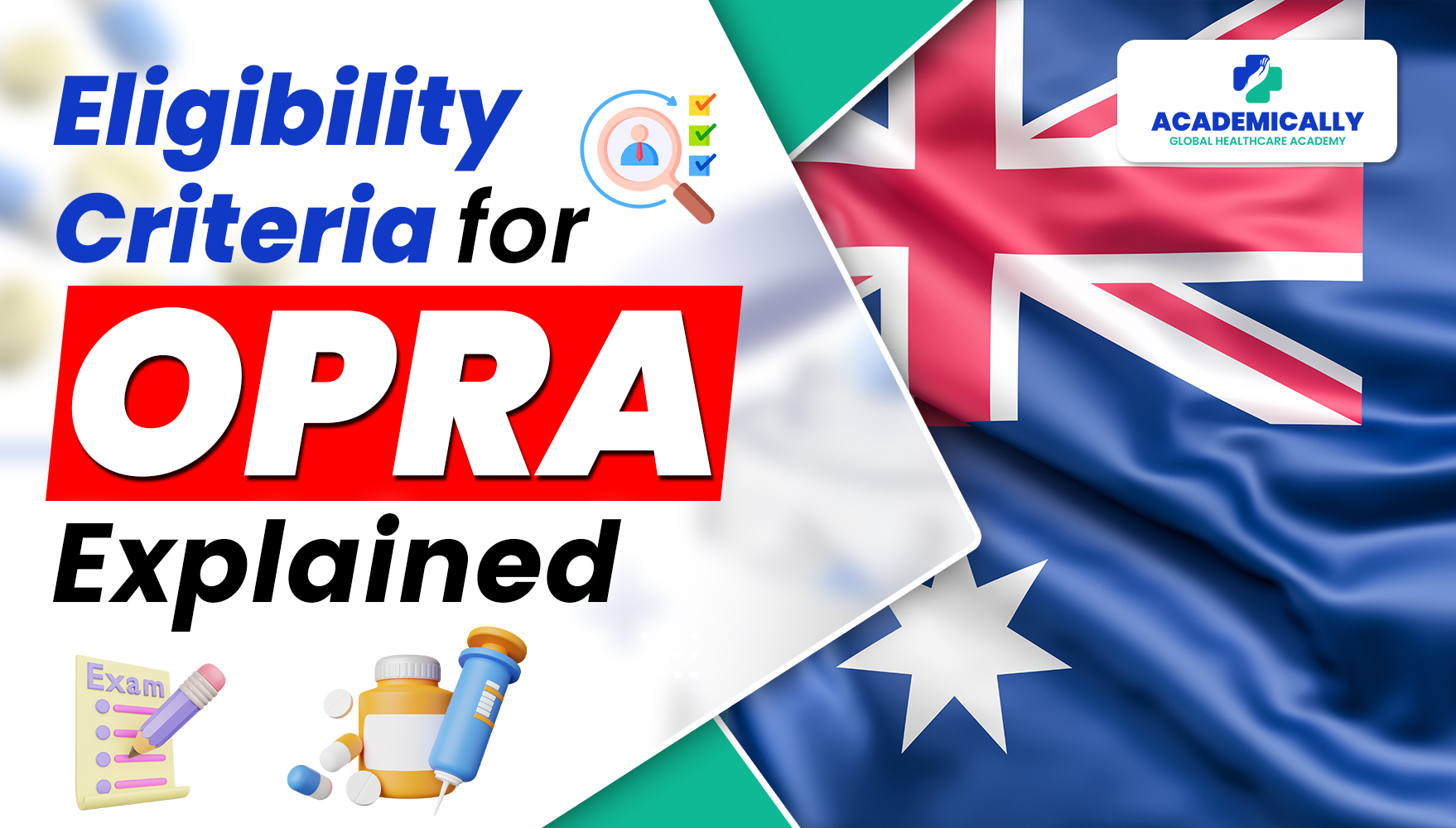What is OPRA?
Read More: Overseas Pharmacist Readiness Assessment (OPRA): A Comprehensive Guide
OPRA Exam Eligibility Criteria
To be eligible for OPRA, candidates must meet several specific criteria, which can be categorised into educational qualifications, professional experience, registration in the home country and English language proficiency.
1. Educational Qualifications
Candidates must hold a pharmacy degree that is recognised and equivalent to the Australian Bachelor of Pharmacy. The degree must be awarded by an accredited institution. Generally, this means:
- A four-year undergraduate pharmacy degree like BPharm,
OR
- A postgraduate pharmacy degree, such as a Master’s or Doctor of Pharmacy, from a recognised institution.
2. Registration in the Home Country
Candidates must be registered pharmacists in their home country. This demonstrates that they have met the professional standards and regulatory requirements of their home country.
3. English Language Proficiency
As English is the primary language of communication in the Australian healthcare system, demonstrating proficiency in English is mandatory. Accepted tests and minimum scores typically include:
Eligibility Fees
The fee for an eligibility assessment request is AUD 810 per request.
How to Perfectly Meet the Eligibility Criteria?
Meeting the OPRA exam eligibility criteria can sometimes be challenging due to common misconceptions and confusion. Here, we address some frequent concerns to help you through the process smoothly and accurately.
1. Diploma vs. Degree Holders
2. Registration Requirements
There is often confusion about registration requirements. While registration in the home country is not mandatory, candidates must be registered as pharmacists in at least one country. This demonstrates that the candidate has met the professional standards of a pharmacy regulatory body, which is crucial for OPRA exam eligibility.
3. Document Requirements
Some candidates believe that presenting their degree certificate will suffice. However, the APC specifically requires a complete academic transcript. The transcript provides detailed information about the courses completed and the grades achieved, ensuring the educational background meets Australian standards. Make sure to gather and submit all necessary documents as specified by the APC.
4. Language of Documents
All documents submitted to the APC must be in English. If the original documents are in another language, they must be accompanied by a certified English translation. This ensures that all information is accurately understood and assessed by the APC. Ensure that translations are certified and precise to avoid any misunderstandings.
5. Recognised Universities
The APC maintains a list of universities whose pharmacy degrees are recognised for OPRA exam eligibility. Verifying that your university is on this list before applying is crucial. Degrees from non-recognised institutions will not be accepted, regardless of the content or quality of the program. Check the APC's list to confirm your institution's status and ensure your degree is valid for the OPRA application.
Read More: OPRA Exam for Overseas Pharmacists: Pattern, Structure and Testing Method Explained
Final Thoughts
Understanding the eligibility criteria and the process for the Overseas Pharmacists Readiness Assessment is crucial for international pharmacists aspiring to practise in Australia.
With thorough preparation and the right resources such as joining the best coaching for OPRA Exam Preparation, pharmacists can successfully pass the OPRA and take a significant step toward professional goals in Australia.
If you dream of becoming a pharmacist in Australia, begin your journey toda. If you have any doubts or questions, get one-on-one sessions with our expert.






